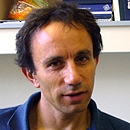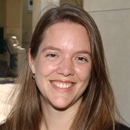Advisory Board and Editors Evolutionary Studies

Ugo Bastolla
I got my PhD in Physics at Rome University, working with Luca Peliti and Giorgio Parisi on biologically inspired problems: evolutionary models and Boolean networks. Since then, I have always been interested in computational biology: Protein folding, Stability and population biology constraints in protein evolution, Conformation changes in proteins, Structural evolution of proteins, Theoretical ecology, Ecological interactions among microorganisms.

James Baxter-Gilbert
I am a Assistant Professor at Mount Allison University in Sackville, NB, Canada, where I teach a variety of biology and science communication courses. The central core of my research examines how anthropogenic landscapes and actions impact wildlife. Commonly my research examines how phenotypic change, triggered by urbanisation or biological invasion, may allow reptiles and amphibians the ability to meet the challenges of a human-dominated world.
I completed my BSc (Biology), GDip (Science Communication), and MSc (Biology) at Laurentian University. My MSc research examined: (1) the effectiveness of mitigation structures at reducing reptile road mortality while maintaining population connectivity and (2) developing techniques for evaluating chronic stress in reptiles relating to roads and traffic. I completed my PhD at Macquarie University, which examined how Australian Water Dragons were responding to anthropogenic habitats through urban-derived divergent phenotypes; testing behavioural, morphological, and physiology traits between urbanise and natural-living populations. I then when on to conduct postdoctoral research at Stellenbosch University in the Centre for Invasion Biology examining how biological invasion were impacting the behavioural, morphological, and physiology traits of Guttural Toads as they transition from native to invasive, and urban to natural habitats. My research now examine the interplay between urban evolutionary ecology and invasion science, using herpetofauna as a model system.

Brian L Beatty
Dr. Brian Beatty is a comparative anatomist, paleobiologist at New York Institute of Technology. He is especially interested in convergent/unique evolution of aquatic amniotes to similar physiological constraints, as well as surface metrology and its relationship to underlying microstructure of bone, skin, and endothelia.

Cristina Becchio
Cristina is Associate Professor at the Psychology Department, University of Turin, and Senior Researcher at the Robotics, Brain and Cognitive Sciences Department, Italian Institute of Technology, Genova. After studying philosophy at the University of Turin, she joined a PhD Program in Cognitive Science in 2001. She became researcher at the University of Turin in 2006. She is interested in the cognitive and neural mechanisms underlying motor cognition.

Patrick Bergeron
Patrick Bergeron is an associate professor in the Department of Biological Sciences at Bishop's University
His research centers around questions about the ecology, physiology and evolution of vertebrates. Under this large umbrella, work is separated into three main projects, on
Chipmunks, Humans and Wood frogs.

Rüdiger Bieler
Curator (research professor) in the Integrative Research Center, Field Museum of Natural History, Chicago and Member of the Committee on Evolutionary Biology, University of Chicago
Research interests include evolutionary systematics, biogeography, comparative morphology, and taxonomy, with special focus on marine Mollusca, especially Gastropoda and Bivalvia. As a “museum person,” he is particularly interested in the development and application of organismal, collections-based research, ranging from extensive new field surveys and large-scale specimen and data management issues, to the integration of morphological, paleontological, and molecular data to address biological research questions. He recently served as lead PI of the Bivalve Assembling-the-Tree-of-Life (BivAToL.org) effort and is involved in coral reef restoration projects and associated invertebrate surveys in the Florida Keys. Past offices include service as president of the American Malacological Society and of the International Society of Malacology (Unitas), and he currently a member of the steering committee of WoRMS (marinespecies.org) and a chief editor in the MolluscaBase.org effort.

Dario Boffelli
Associate Scientist, Childrens' Hospital Oakland Research Institute. Visiting Scholar, University of California, Berkeley.
At CHORI, we use genomic strategies to investigate the role of genetic and epigenetic variation in the regulatory domain of the genome, with an interest in both human disease and evolution. The two main areas of interest of the lab are:The evolutionary biology and potential contribution to human disease of components of the epigenome. And, annotating the regulatory elements of the human genome using a combination of comparative analysis of sequenced vertebrate genomes and public epigenomic datasets.

Alexander Bolshoy
Dr. Bolshoy has completed his PhD from the Weizmann Institute of Science in 1993. He is the author of the book "Genome Clustering: from linguistics models to classification of genetic texts", Springer-Verlag, 2010, and many scientific articles. He is serving as an editorial member of several reputed journals like Bioinformatics and Biology Insights, Computational Biology and Chemistry, ISRN Bioinformatics; and Linguistic Frontiers.

Paula Bona
I am a researcher and teacher in reptile anatomy and macroevolution, particularly crocodiles. I work as a professor at the National University of La Plata (UNLP Buenos Aires, Argentina) and as a researcher at the National Council for Scientific and Technical Research (CONICET, Buenos Aires, Argentina). My interests are crocodyliforms, their evolutionary and biogeographical history. My research is based on systematics and paleobiology. My team and I develop lines of research in osteohistology, neuroanatomy, ontogeny and functional anatomy, in different institutions in our country. For this, we study the anatomy and osteohistology of fossil and living crocodiles, including embryos

Edward L Braun
Professor of Biology, University of Florida; member of UF genetics institute and Affiliate Curator Florida Museum of Natural History

Sarah F. Brosnan
I study the evolution of decision-making and economic behavior across the primate Order. I am particularly interested in how non-human primates make decisions, especially about cooperation, and how they are altered based on social and ecological contexts.
I am currently an Assistant Professor of Psychology, Philosophy & Neuroscience at Georgia State University and direct the Laboratory for Comparative Economic & Behavioral Studies. I am on the editorial board of several open access journals.

Viktor V. Brygadyrenko
Dr. Viktor Brygadyrenko is an Associate Professor in the Department of Zoology and Ecology at Oles Honchar Dnipro National University.
His main scientific projects include:
- Effect of heavy metal ions on the development of invertebrates.
- Morphological variability in populations of beetles in conditions of anthropogenically altered ecosystems.
- Trophic relations of species in litter macrofauna of Ukraine.
- Structure of litter macrofauna communities in forest ecosystems of Ukraine.
- Influence of medicinal plants, flavourings and source materials, approved for use in and on foods, on eggs and larvae of nematodes of mammals.
- Ecological niches of ground beetles (Coleoptera, Carabidae) in Ukraine.
- Morphometric variation in ground beetles.

